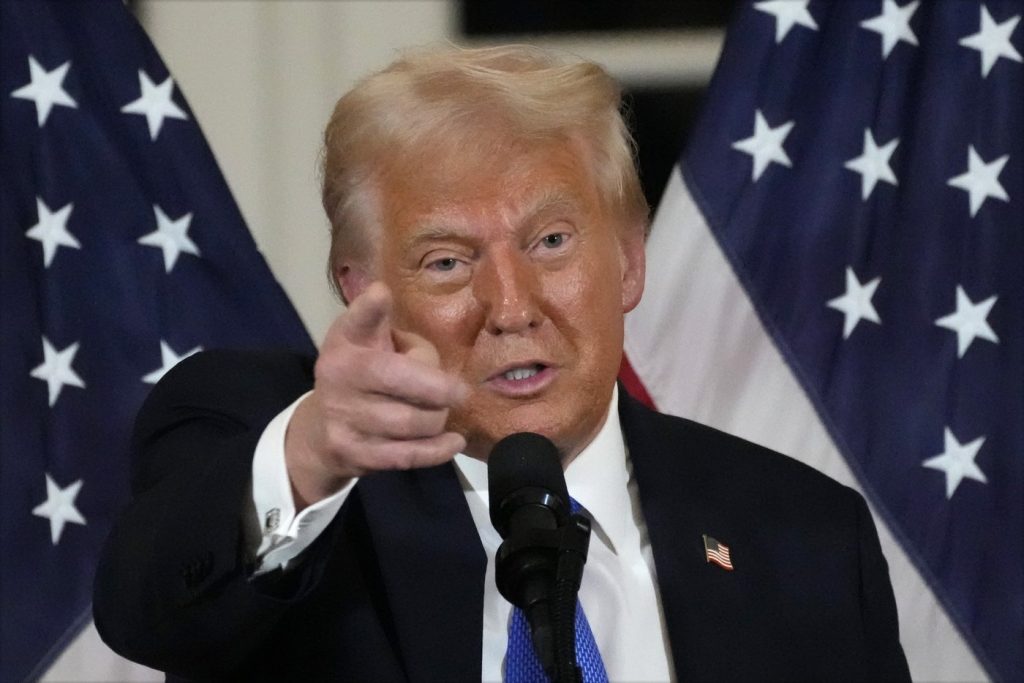CAPE TOWN, South Africa (AP) - Groups representing some of South Africa’s white minority have responded to a plan by President Donald Trump to offer them refugee status and resettlement in the United States, expressing their gratitude but firmly declining the offer. This plan was outlined in an executive order Trump signed on a recent Friday, which also halted all aid and financial assistance to South Africa as a punishment for alleged rights violations against white citizens.
The Trump administration accused the South African government of allowing violent attacks on white Afrikaner farmers and enabling a land expropriation law that permits the seizure of agricultural property owned by ethnic minority Afrikaners without compensation. In contrast, the South African government has denied the existence of any systematic attacks on white farmers and described Trump's claims regarding the land expropriation law as being riddled with misinformation.
Afrikaners, who are mainly descended from Dutch, French, and German settlers arriving in South Africa over 300 years ago, speak Afrikaans—a language developed from Dutch. Despite making up only around 7% of South Africa's 62 million population, whites continue to own approximately 70% of the country’s private farmland. The socio-economic disparities are stark, with a 2021 study revealing that only 1% of whites live in poverty compared to 64% of Blacks.
On Saturday, two notable Afrikaner groups, Solidarity and AfriForum, publicly rejected Trump’s resettlement offer. Dirk Hermann, chief executive of Solidarity, stated, “Our members work here, and want to stay here, and they are going to stay here. We are committed to build a future here. We are not going anywhere.” Kallie Kriel, CEO of AfriForum, added, “We have to state categorically: We don’t want to move elsewhere.”
Trump's executive order has stirred controversy as it imposes sanctions on South Africa, a critical trading partner for the U.S. in Africa. This move came on the heels of Trump and his South African-born adviser, Elon Musk, accusing the country's Black leadership of harboring an anti-white stance. Despite highlighting the plight of Afrikaners, many South Africans would find the portrayal of this group as a marginalized, oppressed community surprising.
The South African Foreign Ministry critiqued the executive order, indicating the irony of providing refugee status to a group that remains economically privileged while vulnerable individuals from other parts of the world are denied asylum in the U.S. It emphasized that this focus on Afrikaners occurs amid widespread discussions of socio-economic inequities affecting the broader population.
Responses from individuals like market trader Sithabile Ngidi in Johannesburg reflect a sentiment that contradicts Trump’s narrative. Ngidi argued that she has not observed mistreatment of white individuals in South Africa, suggesting that Trump's opinion should be informed by actual experience rather than external narratives from figures like Elon Musk, who have not lived in the country for years.
Moreover, Trump’s actions have inadvertently drawn attention to long-held beliefs among certain white South Africans who feel discriminated against as a form of repercussion for apartheid, a system which was predominantly led by Afrikaners. Organizations such as Solidarity and AfriForum are vocal opponents of the new land expropriation law, claiming it unfairly targets land owned by whites who have invested years of effort into developing that land. They also assert that recent language laws threaten the use of Afrikaans in schools, while critiquing affirmative action policies that prioritize Black interests as outright discrimination.
In defense of these laws, the South African government states they are part of a broader effort to address the injustices of colonialism and apartheid, during which Black South Africans were stripped of their property and rights. The discussions surrounding this issue underscore the complexity of South Africa's ongoing struggle with its colonial past and the socio-economic divides that persist in the present day.










